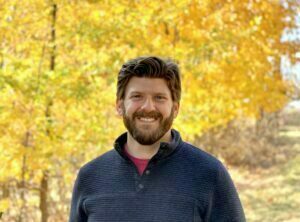Member Insight – Matthew Mietchen
 What sparked your decision to become an epidemiologist?
What sparked your decision to become an epidemiologist?
During college, I was interested in science and medicine but always focused on curiosities such as why people ended up in the hospital rather than how to treat them. A professor of mine mentioned epidemiology to me after a discussion, a term I was unfamiliar with, and I decided to investigate. After college, I took an Intro to Epi course, non-matriculated, and was hooked. After graduating with my MPH in 2009, I became the HIV/STD epidemiologist at a state health department until 2017 when I decided I wanted to do research and pursue my PhD. I am truly grateful I found this field.
What do you see as the biggest obstacle facing epidemiologists in the next five years?
The COVID-19 pandemic has exposed several challenges very clearly. First, I believe that science communication must become an integral part of our training. Effectively communicating risk, research findings (e.g., what can the model tell us), and causal effects, to name a few, are more important than ever. Secondly, I feel that academia, government, and private industry must continue to increase collaboration, especially at a local level. COVID has placed a spotlight on the lack of public health infrastructure and funding, issues surrounding data collection and analysis, and the challenges with timely peer reviews and study execution. While I am amazed at what epidemiologists around the world have achieved in the last 18 months, I feel we must continue to discuss how to overcome these obstacles in the future.
Do you have any pets?
My wife and I have always had multiple pets (partly due to her being a veterinarian). Currently, we have our sweet dog Siena, a three-legged red heeler, and still the best hiker in the family. We also have our three male cats, with very distinct personalities, adding to the dynamic. Recently, we lost my best friend of 16 years, Porter, who was just an amazing guy. A few years before that, we lost our other sweet boy, Gus, who we rescued from Puerto Rico several years prior. Very fortunate to have had such incredible companions.
Why did you join SER? What keeps you coming back?
My PhD advisor introduced me to the SER community, a collection of brilliant and wonderful people, and I am very thankful for that. I have felt welcome from the beginning, and I continue to look forward to all the future collaborations and friendships.
What advice do you give students who want to become epidemiologists?
First, do your best to not compare your path to others. Your unique story and experiences will be more important to your career than you may believe. And second, epidemiology is a vast, diverse, and interdisciplinary field. Explore your interests and passions, especially as a student. Don’t feel like you need to know everything out the gate and be confident that you have the skills and mindset to contribute. Because you will. But find that passion, we are problem solvers on a macro-scale where intersecting societal issues collide, embrace those collisions.
Outside of epidemiology what do you enjoy doing?
I absolutely love spending time with my wife and my 9-month-old daughter. Growing up in Salt Lake City, I enjoy many outdoor activities; hiking, skiing, camping, and fishing to name a few. I also love traveling with my wife, sampling too many craft beers at new breweries, playing the guitar, and spending time with friends and family when possible. While the arrival of our daughter, in addition to the pandemic, has brought many of these things to a halt, it has solidified my appreciation of what I have, what I’ve accomplished, my failures, my capabilities, and all the adventures my family and I look forward to in the near future.
What is something that not many people know about you?
A lot of people don’t know that I am a Type 1 Diabetic. To be fair, it’s not something I usually place in my introduction slides, but I’ve become more comfortable sharing this part of my life with others. It’s important for me to educate those that ask about my disease and to normalize the fact that we all have our battles, so we need to be kind to each other.
